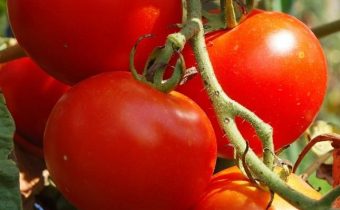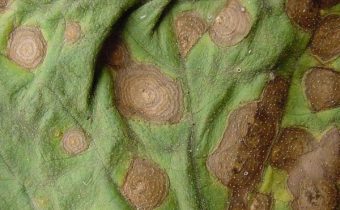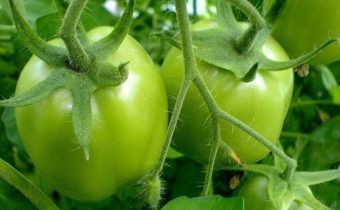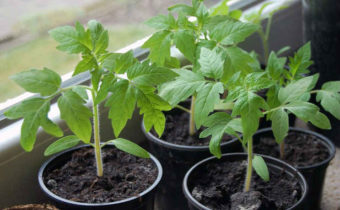Tea Cake Fertilizer
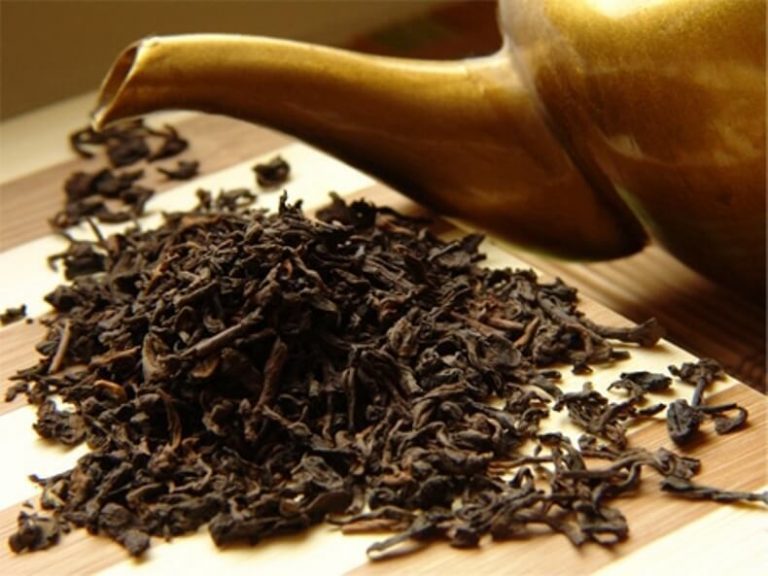
One of the cheap and useful fertilizers for tomatoes is used tea brewing. It is an effective, safe, natural supplement that does not require additional financial costs - kitchen waste is easy to accumulate throughout the year.
It is easy to prepare and apply fertilizer from tea leaves, but you need to know a few nuances to get the most out of top dressing and avoid harm to planting.
The benefits of tea brewing for tomatoes
The value of brewing, as a fertilizer for tomatoes, is related to its mineral composition, rich in substances necessary for the plant to grow and produce fruits.
100 g of tea leaves contain:
| Element | The proportion of the substance (in grams) | Value for tomatoes |
| Potassium | 1,79 | Provides high sugar content and large fruit sizes. Increases immunity and resistance to weathering, contributes to the survival of seedlings. |
| Calcium | 0,47 | Stimulates seed germination, growth of shoots and roots, affects the number of ovaries and the size of fruits. |
| Magnesium | 0,22 | Participates in photosynthesis, providing nutrition to the cells. The element deficiency is reflected in the weak formation of ovaries, small size and sour taste of the fruit. |
| Iron | 0,2 | Required for increasing green mass and the formation of ovaries. |
| Manganese | 0,083 | Delivers nutrients to the plant organs, ensuring the growth of roots, aerial parts and fruits. Increases the concentration of vitamin C in fruits. |
| Boron | 0,0095 | Stimulates flowering and formation of ovaries. |
| Zinc | 0,0023 | Promotes the accumulation of sugars in the pulp and growth of fruits. |
| Copper | 0,0011 | Stimulates flowering and growth of roots and shoots. |
| Sulfur | 0,065 | Provides sugar content of fruits and a large number of ovaries. |
| Molybdenum | 0,00004 | |
| Iodine | 0,00001 |
Tea leaves have the ability to slightly increase the acidity of the soil. Suitable for tomatoes is considered to be slightly acidic soil, so this feature will be useful on alkaline soils, but it is undesirable to add fertilizer to acidic ones.
Tea leaves improve the structure of the soil, making it lighter and friable. This is especially true when cultivating tomatoes on clay soils that are too heavy for the crop.
Selection and preparation of raw materials
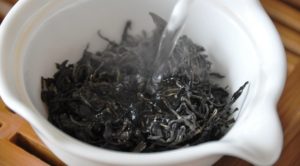
As a fertilizer for tomatoes should choose leaf tea, which retains the maximum nutrients. Attention should be paid to the quality of the product - the tea should not contain dyes or aromatic additives, these substances can harm plants.
For top dressing Tomatoes should be taken only sleeping brewing, because after using the raw material loses some of the substances, which prevents excess nutrition. In addition, after brewing, the aluminum harmful for plants is washed out of the tea leaf.
The volume of raw materials necessary for fertilizing the beds will have to be accumulated, therefore after using the tea leaves must be dried to prevent the formation of mold. For drying, you can use a sieve or hang it in a gauze bag in a draft - it is important to ensure good air access. Dried brewing should be stored in a dry place using a glass or plastic, but not metal container with a tight lid. Moldy tea leaves cannot be used to feed tomatoes.
Fertilizer application methods
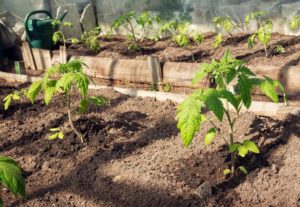
There are several options for using tea leaves to feed tomatoes, the choice of which depends on the specific goals of the gardener.
- Introduction to the ground.Welding can be used to improve the quality of the soil - as a baking powder and organic fertilizer. When digging in spring or autumn, tea leaves should be embedded in the soil at the rate of 5 kg of raw materials per 1 hundred squares of beds.
- Fertilizer for seedlings. A high concentration of potassium, which increases the endurance and adaptive qualities of plants, makes tea brewing useful for seedlings. In each well should be put 100 g of fertilizer, mixed with wood ash.
- Watering infusion. It is possible to give liquid dressing at any phase of the growing season of tomatoes. 250 g of tea leaves need to pour 3 liters of boiling water and leave to infuse until it cools. The volume of infusion poured under the shrub is determined by the age of the plant - it must correspond to the usual amount of water for a single irrigation.
- Mulch. During the summer, tea leaves can be poured on a garden bed with tomatoes immediately after use, without drying. Tea leaves retain soil moisture well and inhibit the growth of weeds, decomposing, nourish the soil.
Add slept tea leaves to compost accelerates the processes of biomass reabsorption due to tannins contained in tea.
Tea leaves should be used only as an additional feeding of tomatoes; they cannot replace their main organic and mineral fertilizers. But to exceed the dose in this case is difficult, welding - micronutrient, safe for tomatoes.


